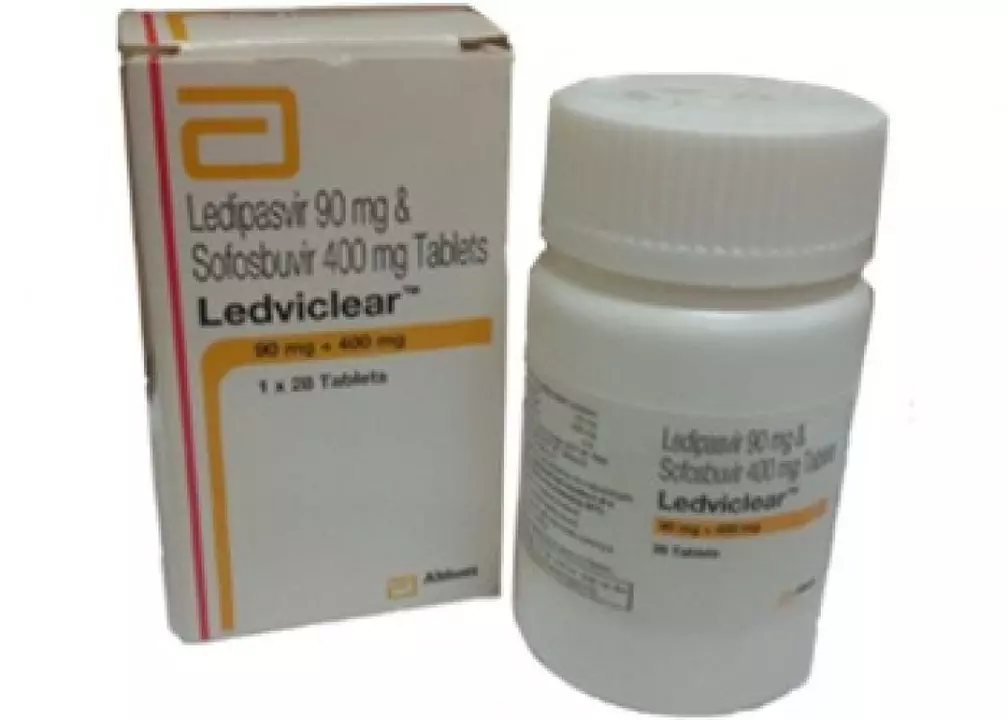If you’ve heard the name ledipasvir, you probably have questions: what does it treat, how do you take it, and what should you watch for? Ledipasvir is an antiviral drug used against hepatitis C virus (HCV). It’s made to block a viral protein called NS5A, and it works best when combined with sofosbuvir in a single pill (commonly sold as Harvoni). That combo has become a standard option for many people with HCV, especially genotype 1.
Ledipasvir never works alone. The usual product pairs 90 mg of ledipasvir with 400 mg of sofosbuvir in one tablet, taken once daily with or without food. Treatment length depends on your situation: 8 to 12 weeks for many people without cirrhosis, and 12 weeks (or more) if you have cirrhosis or prior treatment failure. Your doctor will decide the right course based on viral genotype, liver health, and any past treatments.
Before starting therapy, you’ll need baseline blood tests: HCV RNA level, liver function tests, and hepatitis B screening. Hepatitis B reactivation has happened in some people treated for HCV, so doctors check for that first. Regular follow-up blood tests track viral response and side effects during treatment.
Common side effects are usually mild: fatigue, headache, nausea, and trouble sleeping. Serious problems are rare but can include allergic reactions or worsening liver issues in advanced disease. If you notice jaundice, severe belly pain, swelling, or shortness of breath, get medical help fast.
Drug interactions matter. Avoid strong P-gp inducers like rifampin and St. John’s wort — they can lower ledipasvir levels and reduce effectiveness. Antacids, proton pump inhibitors, and H2 blockers can also lower absorption if not spaced correctly from the pill. Sofosbuvir adds its own limits: it’s not ideal for people with severe kidney failure without specialist advice.
Adherence is key. Missing doses can encourage the virus to develop resistance. Take the pill at the same time every day and follow your clinic’s testing schedule.
Thinking of buying ledipasvir online? Be cautious. Only buy from licensed pharmacies that require a prescription and show clear contact details. Fake or substandard meds are common on shady sites and can harm your liver or leave the virus untreated. If cost or access is an issue, talk to your provider about assistance programs or generic options that are approved and tested.
If you’re considering treatment, talk with a hepatologist or infectious-disease specialist who treats hepatitis C. They’ll match the best regimen to your needs and keep you safe during treatment. Ledipasvir is a powerful tool when used correctly, but proper testing, follow-up, and honest medication sourcing matter just as much.

During my treatment with Ledipasvir, I can expect it to be combined with Sofosbuvir to help treat chronic hepatitis C. Throughout the process, I may experience some side effects such as fatigue, headache, and nausea. It's essential for me to follow my doctor's instructions and take the medication as prescribed to ensure its effectiveness. I should also remember to inform my doctor of any other medications I am taking to avoid potential drug interactions. Overall, Ledipasvir treatment aims to improve my health by clearing the hepatitis C virus from my system.
